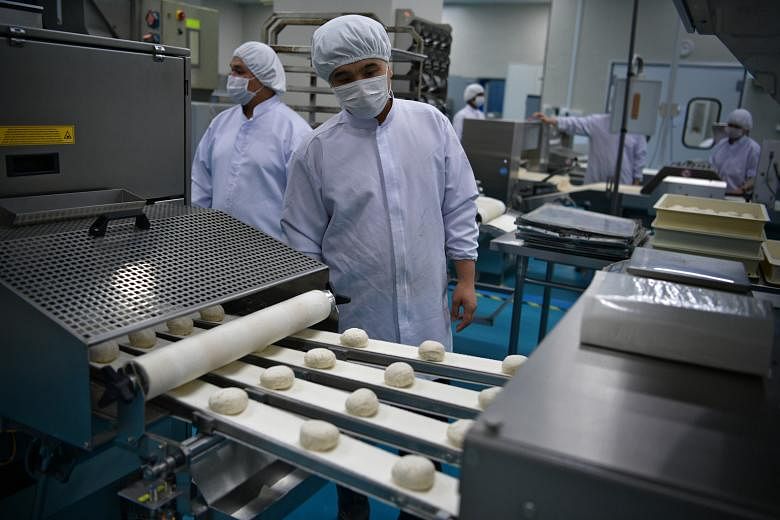About half of the work that people are paid to do in the global economy can be automated by adapting existing technologies, according to McKinsey Global Institute.
It also said people will need to continue working alongside machines to produce the economic growth rates which countries around the world aspire to reach.
The findings come from a report by McKinsey's business and economics research arm that analysed more than 2,000 work activities across 800 occupations.
It noted that 49 per cent of the activities that people are paid to do have the potential to be automated by adapting technologies that have already been demonstrated. That amounts to almost US$16 trillion (S$23 trillion) in wages.
"Automation will...affect almost all occupations, not just factory workers and clerks, but also landscape gardeners and dental lab technicians, fashion designers, insurance sales representatives and CEOs, to a greater or lesser degree," the report said.
The extent to which these jobs can be automated depends on the types of work involved. But as a rule of thumb, the report said about 60 per cent of all occupations have at least 30 per cent of activities that could technically be automated.

Areas most susceptible to automation include physical activity in highly structured and predictable environments, as well as the collection and processing of data.
This type of work is most prevalent in sectors like manufacturing, accommodation and food service, and retail trade, and includes some middle-skill jobs.
Other activities - such as working with people, applying expertise to decision-making, planning, creative tasks, as well as managing and developing people - are less susceptible to automation.
Most occupations will change instead of being completely automated away, the report noted.
Still, it noted that the benefits of automation for businesses and economies are clear.
"The automation of activities can enable businesses to improve performance by reducing errors and improving quality and speed, and in some cases achieving outcomes that go beyond human capabilities."
At a time of lacklustre global productivity growth, automation would also give a needed boost to economic growth and prosperity, as well as help mitigate the impact of a declining share of the working-age population in many countries, the report added.
McKinsey Global Institute estimates automation could raise productivity growth globally by 0.8 to 1.4 per cent annually.
However, this trend presents some complications for policymakers, who will have to develop schemes to help workers and institutions adapt to the impact on employment.
This will likely include rethinking education and training, income support and safety nets, as well as transition support for those dislocated by automation, the report noted.
"(Policymakers) should embrace the opportunity for their economies to benefit from the productivity growth potential and put in place policies to encourage investment and market incentives to encourage continued progress and innovation."
Individuals also have a role to play - they will need to engage more comprehensively with machines as part of their everyday activities, and acquire new skills that will be in demand in the new automation age, said the report.


